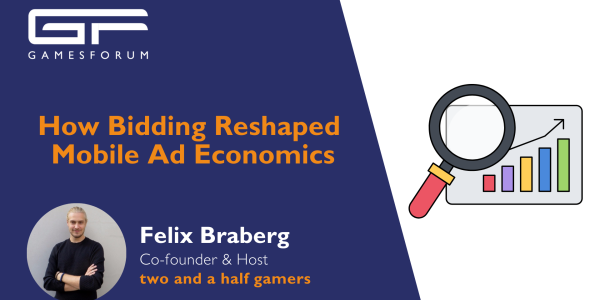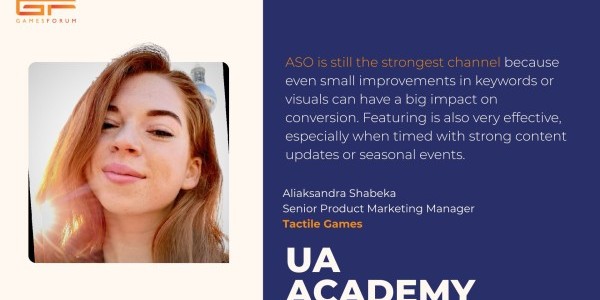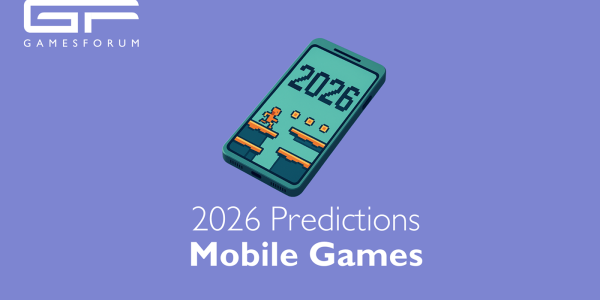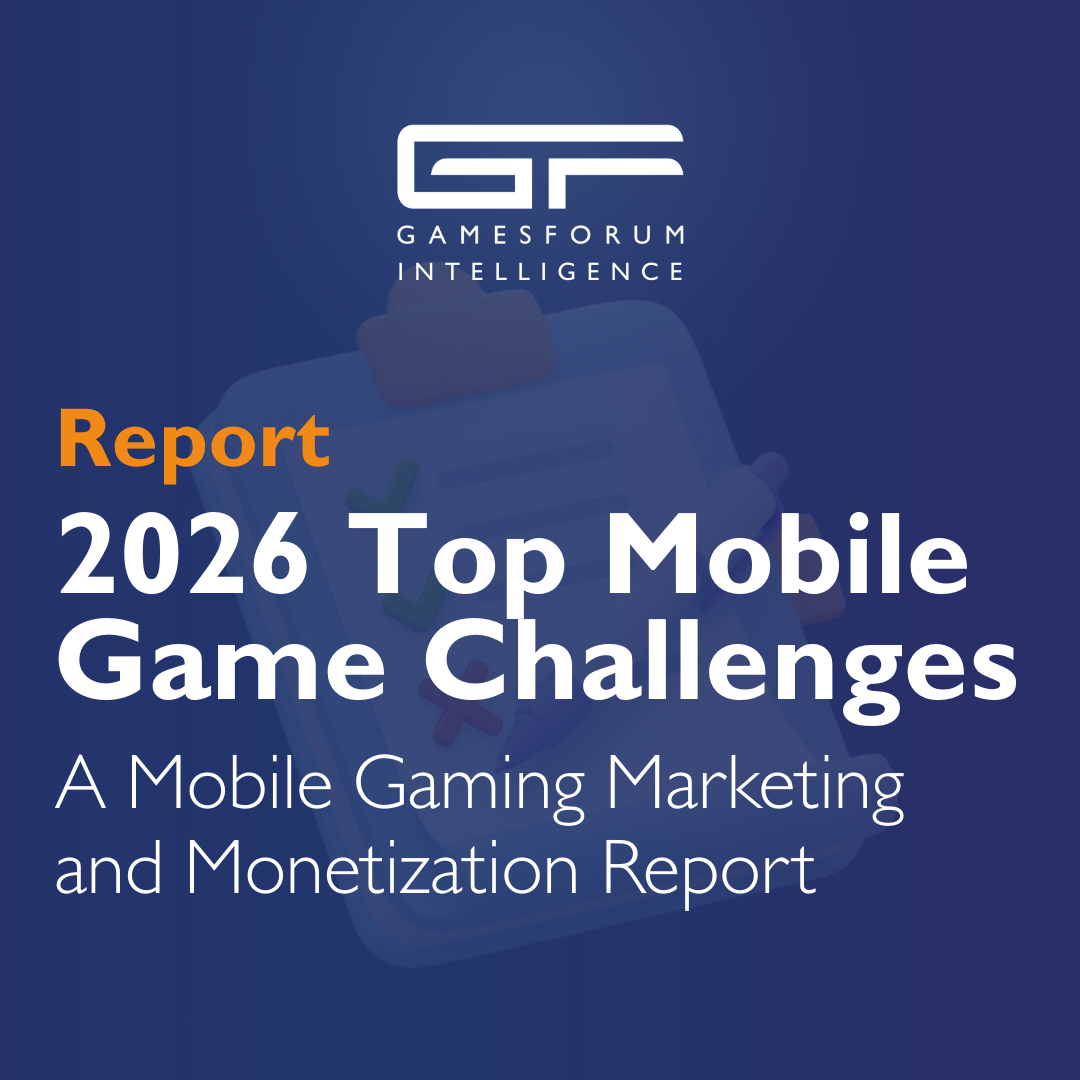Gamesforum Meets: Ravit Ross, CRO, Start.io

Josh: Hey Ravit- thank you for joining us! Can you introduce yourself? Who are you and what do you do?
Ravit: Hi everyone! It was great chatting with you all at Gamesforum Barcelona. If we didn’t get a chance to meet, I lead account management and sales at Start.io, which is one of the industry’s leading publisher monetization platforms. More than 500,000 mobile apps use Start.io’s monetization SDK, which we use to deliver more than 300 million ads per day. I lead the team that works with publishers to make sure they’re happy and successful.
Josh: How did you come to work in mobile ad tech?
Ravit: I've worked in the mobile ad tech space for more than a decade. I started my career in mobile ad tech at YouAppi, where I led the account management team as the Vice President of Global Growth. For the past four years, I’ve worked on the leadership team at Start.io, where I serve as the Chief Revenue Officer.
Josh: What is your current go-to mobile game?
Ravit: I’m a big fan of Magic Jigsaw Puzzles from ZiMAD. They’ve been a great partner for Start.io, and make an incredible line of mobile games that are loved by hundreds of millions of people worldwide.
Josh: What is Start.io’s MO?
Ravit: Start.io started 13 years ago to help mobile publishers earn more money from ads—no matter their size. This was our biggest focus for years and it remains a primary driver of the products we build and the services we provide.
More recently, we’ve expanded into other areas of the ad tech ecosystem, and now provide products and services for advertisers, such as audience segmentation and targeting. We believe that publishers, advertisers, and consumers win when we deliver relevant, targeted ads at scale. It’s a mantra that drives the decision-making at Start.io.
Josh: Talk to us about the ad monetization panel at Gamesforum Barcelona, what were your key takeaways?
Ravit: I really enjoyed participating in the ad monetization panel at Gamesforum Barcelona. One of the big themes I heard on the panel was that mobile game publishers are experts at certain areas of mobile monetization (i.e. in-app purchases), but that there is still room for growth when it comes to mobile ads.
For example, mobile game publishers could be doing more with the first-party data that they gather from their customers. Do you know where your customers are located? Do you know their age, gender, and interests? Passing along that first-party data in your ad requests can help companies like Start.io deliver better-performing ads, and help you yield higher eCPMs.
In a related vein, a lot of mobile game publishers want to jam as many rewarded video ads into their apps as possible, rather than considering other types of ad units that have lower CPMs but create a better user experience.
In a perfect world, mobile game publishers maximize the value of the first-party data they have access to and use that data to deliver a wider range of targeted ads to the customers who are most likely to click on them. That can be a challenge, but companies like Start.io are here to help.
Josh: In preparation for the panel, we talked about audience segmentation and testing by geo. How can publishers boost revenue with geo-specific testing and segmentation?
Ravit: Geographic targeting is a demographic element that is hugely important for mobile game publishers who want to maximize their ad revenue. Today, geographic ad targeting is mostly done on the country level in Europe, and on the state level in the United States.
For example, a car company might search for high-income consumers living in a specific geographic region who have shown high buying intent for luxury car brands like theirs. Mobile game publishers can experience high CPMs if they’re able to deliver targeted ads to the right users at the right time.
Targeting isn’t just confined to geography—advertisers are willing to pay higher CPMs if they’re able to target by age, gender, income level, and interests.
This ties back to what we were talking about on the mobile monetization panel at Gamesforum Barcelona: Publishers can improve their CPMs by passing on demographic data as part of their ad requests.
Today, most mobile ad requests contain very basic information: Ad unit type requested, mobile ID, the location of the user, device type, app name, publisher name, and publisher type. Within seconds, a super sophisticated, algorithmically driven marketplace chooses an ad from multiple options, and delivers it to the user.
In the future, mobile ad requests might include additional demographic information from the mobile app publisher, such as the user’s age, gender, and interests. This will be particularly important once Google stops sharing mobile advertising IDs with the ad tech ecosystem, as expected.
Josh: Navigating the user experience vs revenue is a defining challenge of mobile ad monetization. How is Start.io helping publishers maximise revenue while protecting retention?
Ravit: User retention is tough for nearly all mobile app publishers. We all know the stats: The average mobile app loses 77 percent of its daily active users just 3 days after initial install.
Given that churn rate, I can understand why publishers want to jam as many high-paying ads as possible into their mobile apps to try and recoup their cost of acquiring those customers.
All publishers walk a fine line between maximizing revenue and protecting customer retention. Where we can, we try to serve as consultants to our partners, and suggest ad units that are less jarring for users, to improve their retention rate.
On a similar theme, what would you say is defining mobile ad monetization in 2024?
Privacy is by far the most important topic defining mobile ad monetization in 2024. Google has already permanently turned off third-party cookies for 30 million Chrome users and plans to turn off third-party cookies for everyone on Chrome by the end of the year.
Google says it plans to turn off mobile advertising IDs on Android soon. These two decisions have sparked a race among ad tech companies to find suitable alternatives to cookies and mobile IDs that still allow them to deliver relevant, targeted ads.
At Start.io, we believe publishers hold the solution. Publishers need to know more about their users, and pass that information on to ad tech companies, so we can continue to deliver high-performing ads.
There’s a lot of work that needs to be done to get there—most publishers don’t think of themselves as first-party data companies today.
This represents a shift in the advertising ecosystem by putting the power of audience segmentation and targeting in the hands of publishers. The mobile game publishers that thrive in the post-cookie, ID-less world will be those who understand the value of the data they have access to.
Josh: Final question, what was your highlight from your time in Barcelona?
Ravit: It’s got to be the food—I absolutely love tapas and Spanish wine. I’m already looking forward to coming back to Gamesforum Barcelona next year.
Thanks for joining us Ravit! Be sure to checkout Start.io to hear more about maximising your revenue potential!
The date has been set for Gamesforum Barcelona 2025, February 5th & 6th at the Intercontinental.











